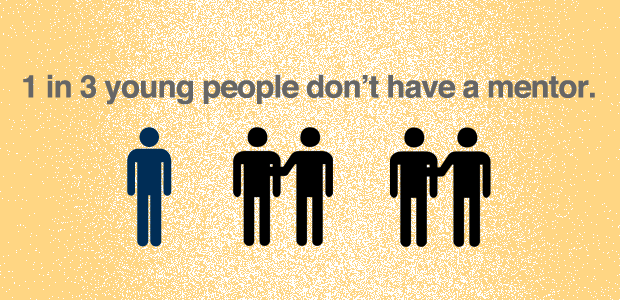Why American Young People Value Their Mentors
•
Many of us in the nonprofit world spend a lot of time talking about young people, the challenges they face and ways to help them succeed. But nothing beats hearing straight from youth themselves, and it is their voices that make a new survey and report about mentoring so meaningful.
The Mentoring Effect, a report from Mentor: The National Mentoring Partnership, reflects the experiences and opinions of a national sample of more than 1,100 young people ages 18 to 21 who were interviewed during the summer of 2013.
The report also shares some good news. The number of formal mentoring relationships for at-risk young people has surged in the past two decades, from 300,000 to 4.5 million today. This growth benefits all of us. A recent study indicated that for every $1 invested in youth mentoring programs, society receives at least $3 return in benefits. And there continues to be widespread, bipartisan support for mentoring – one of the few issues Democrats and Republicans agree on these days.
Yet there remains a troubling “mentoring gap” in our country. More than 1 in 3 young people – 16 million youth – will reach age 19 without ever having a mentor of any kind – either structured or “naturally occurring.” Included in this group are nine million at-risk youth without a mentor and whose ability to access opportunities will be more limited because of this absence.
That is why Opportunity Nation supports the expansion of high-quality mentoring programs. Often, the difference between falling off track or finding a meaningful pathway to school and career is the presence of a caring adult in a young person’s life.
We are proud to have several mentoring organizations in our diverse coalition. These include iMentor and theUnited Way, which is working to recruit more mentors and cut the number of high school drop outs in half by 2018.
Much of what these young people said about the positive effect mentors have had on their lives is backed by rigorous reviews of research and previous studies. The young people with mentors who were surveyed said:
- They had set higher educational goals – 76 percent of those with mentors compared with 56 percent who had no mentor.
- They were more likely to attend college than those without mentors. Forty-five (45) percent of those with mentors enrolled in college compared with 29 percent who enrolled but had never had a mentor.
- They were more likely to participate in sports and extracurricular activities – 67 percent compared with 37 percent of those without mentors, and to hold leadership positions within those clubs – 51 percent compared with 22 percent.
- They were more likely to volunteer in their communities – 48 percent compared with 27 percent of young people without mentors.
The report urges public policies and investments that support the expansion of high-quality mentoring and using mentoring as a tool to address many of the issues facing our country, including a skills gap and stalled upward mobility. Our coalition partner, Mass Mentoring Partnership, is held up as an example of smart state policies that support mentoring. And the report asks Congress to include $90 million for the Youth Mentoring Program at the U.S. Department of Justice in its upcoming budget, funds that ideally would be matched by private sector investments. These are the kind of cross-sector collaborations that we need to get more of our young people on the path to success and to ensure the American Dream is within their reach.









